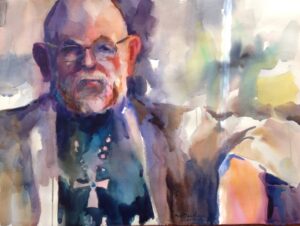
MBTI Compatibility: INFJ & ENFJ
Common assumptions about choice of mate are suggested by two common phrases: Birds of a feather flock together; opposites attract. When considering Personality Type differences we may see that sometimes, both are true for some couples
The relationship between an INFJ (Introverted, Intuitive, Feeling, Judging) and an ENFJ (Extraverted, Intuitive, Feeling, Judging) can be characterized as deeply connected, harmonious, and often filled with warmth and mutual support. Both personality types belong to the Idealist temperament group, which means they share core values centered around empathy, compassion, and a desire to make a positive impact on the world.
One of the most notable aspects of the INFJ-ENFJ relationship is their shared dominant function of Feeling (F). Both types prioritize emotions, values, and interpersonal harmony in their decision-making processes. This common ground fosters a profound understanding and emotional connection between them. They are attuned to each other’s feelings, which often results in a nurturing and supportive partnership.
The extraversion-introversion dynamic in this relationship can be complementary. ENFJs are typically more outgoing, sociable, and adept at navigating social situations, while INFJs tend to be introspective and reserved. This contrast can benefit the relationship as ENFJs can encourage INFJs to engage in social activities and connect with a broader network of people, while INFJs provide a sense of depth, authenticity, and insight to the relationship.
Extroverts are energized in the outer world interacting with other people. Introverts are energized while alone nurturing their inner selves.
The classic differences are usually described in relationship to attendance at parties and other gatherings. Extroverted types arrive early, talk to everyone, and are among the last to leave, exhilarated. Introverted types arrive late, perhaps talk to just a few others or maybe only one or none, and leave early exhausted.
Another difference reveals itself in conversations. I can tell you, being a strong Extroverted type, that I almost can’t think without speaking or writing. If you start a conversation with me, especially by asking a question, I immediately begin to speak. What you hear will not be my best thought. I’m just getting warmed up. I used to tell my late wife, “Remember, dear, I don’t know it’s stupid until I hear myself say it!”
Introverts are the opposite. They think internally to themselves, considering the alternatives. The first thing you get is silence. When they do speak it is their best thought already formed.
Thus if, as an Extrovert, you wish to have a serious conversation with an Introvert, it is best to suggest a time in the future. Then when the appointed time arrives limit your speaking to leave room for the Introvert because they are not liable to interrupt you.
Meanwhile, it is helpful for Introverted types to know these things about their Extroverted companions. Try to be understanding when they cut into your comments. You might go so far as to make a time out sign when we Extroverts have not let you speak.
Friendships are another area of comparison that may be more alike that they seem. We Extroverted types typically have lots of friends. We make them easily and worry ourselves about the relationships hardly at all. Introverts find it more difficult to make friends because they are not interested superficial connections. They can rise to the occasion and make small talk but don’t really like it. They want the deeper inner connection with more meaningful conversations.
You might find it interesting to know that I have been married to two strong Introverts. Both my late wife and my current spouse are INFP. Moreover, I have had several other INFP friends. What that tells me is that although I have many friends my deepest most meaningful friendships are with my Introverted wives. Conversely this works well for my wife. I am the one person she can share with deeply.
Both INFJs and ENFJs possess a strong Intuitive (N) function, which means they are inclined toward abstract thinking, creativity, and a focus on the bigger picture. This shared trait enables them to engage in deep, meaningful conversations about their ideals, dreams, and visions for the future. They often share a passion for exploring new ideas, making plans for personal growth, and envisioning a better world.
Additionally, the Judging (J) preference in both types implies an inclination toward organization, structure, and planning. This can be beneficial in managing daily life and shared responsibilities. INFJs and ENFJs are likely to work together efficiently when it comes to making decisions, setting goals, and implementing their ideas, which can contribute to a sense of stability in the relationship.
The lack of a strong Perceiving function may cause these two feelers to jump to conclusions.
However, like any relationship, there can be challenges. Both INFJs and ENFJs may struggle with a tendency to be perfectionistic or overly critical of themselves and each other, which could create unnecessary stress. Additionally, conflicts may arise if they have differing opinions or priorities, as both types can be strongly committed to their values and beliefs.
In summary, the relationship between an INFJ and an ENFJ is marked by a deep emotional connection, shared values, and a mutual desire to make a positive impact on the world. Their compatibility in terms of feeling, intuition, and judging functions creates a strong foundation for understanding and support. While challenges may surface, their commitment to open communication, empathy, and shared goals can help them overcome obstacles and build a loving and enduring partnership.
For more information regarding Personality Type check out my series on Understanding People. Click Here!